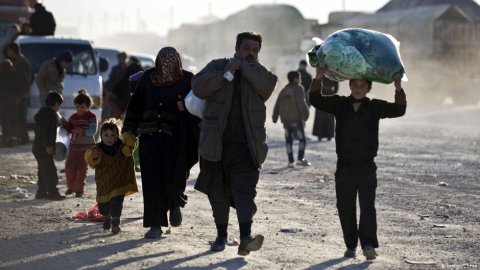Turkish Guards Sentenced for Torturing Syrian Migrants to Death
In a significant legal development, four Turkish border guards have been sentenced to life imprisonment for the horrific deaths and torture of two Syrian migrants. This case has drawn international attention, highlighting the severe human rights violations faced by migrants attempting to cross borders in search of safety and better opportunities.
The Incident and Its Aftermath
The tragic incident occurred when the two Syrian migrants were apprehended by the Turkish guards while trying to cross the border. Reports indicate that the guards subjected the migrants to inhumane treatment, resulting in their deaths. The case has raised serious concerns about the treatment of migrants, especially in regions where border security is heavily enforced.
The court’s ruling is seen as a crucial step towards holding individuals accountable for human rights abuses. It sends a strong message that such actions will not be tolerated, especially in light of the increasing number of migrants fleeing conflict zones and oppressive regimes.
Migration Context and Human Rights Violations
Migration has become a pressing issue globally, with many individuals risking their lives to escape war, poverty, and persecution. The plight of migrants is often exacerbated by stringent border controls and harsh policies that can lead to tragic outcomes. Recent reports highlight the following:
The situation for migrants is particularly dire in regions like Turkey, where many individuals from Syria seek refuge from ongoing conflict. The Turkish government has been criticized for its handling of migrant issues, with reports of mistreatment and abuse surfacing regularly.
Legal Framework and Accountability
The sentencing of the Turkish guards marks a pivotal moment in the fight for accountability in cases involving the abuse of migrants. It underscores the importance of legal frameworks that protect human rights and hold violators accountable.
However, despite this ruling, many challenges remain:
International bodies and human rights organizations continue to push for reforms aimed at improving the treatment of migrants and ensuring their safety during transit.
Future Implications
The sentencing of the Turkish guards is a significant step towards justice for the victims and their families. It raises awareness about the urgent need for comprehensive immigration reform that prioritizes human rights and dignity.
As we move forward, it is essential to consider the broader implications of this case:
In conclusion, the sentencing of these Turkish guards serves as a reminder of the ongoing struggles faced by migrants worldwide. It highlights the critical need for continued advocacy and reform to protect the rights and dignity of those seeking better lives. As we reflect on this case, let us push for a future where all individuals, regardless of their immigration status, are treated with respect and compassion.










